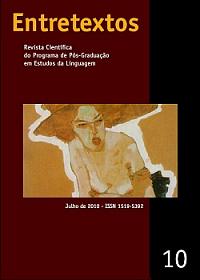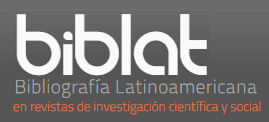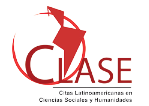Classroom interaction: possibilities of approaches
DOI:
https://doi.org/10.5433/1519-5392.2010v10n1p176Keywords:
Teacher-student interaction, Conflict, ArgumentationAbstract
The purpose of this paper is to investigate the existence (or non-existence) of a space inside the classroom which is favorable to the practice of argumentation in situations of conflict related to the teacher-student interaction. In view of the fact that interaction is mediated by the language, it is interesting to investigate how the feelings produced by the language influence the subjects involved, collaborating or not for their actions toward the practice of the argumentative speech. The method of investigation consists of observations of a 3rd grade High School Course, in public school located in the outskirts of São Paulo. The analyses are based in the Conversation Analysis, Theory of Argumentation and Discourse Analysis. The analysis results show that the space in classroom that privileges the argumentation does not come to be effective. There is a way to go, in terms of understanding the following aspects: the concepts of language; the interaction process; the discourse, its wider context of elaboration and possible effects; the conflict; the art of argumentation in specific situations of conflict, so that such understanding can be reverted to actions, whose effects will be able to change the reality involving the teacher-student interaction.Downloads
References
DUCROT, Oswald . Esboço de uma teoria polifônica da Enunciação. In: DUCROT, Oswald. O dizer e o dito. 2. ed. Campinas, São Paulo: Pontes, 1987, p. 161-218.
GRICE, Herbert Paul. Lógica e conversação. In: DASCAL, Marcelo (org.). Fundamentos metodológicos da linguística. Campinas-SP, 1982. v. 4: Pragmática: problemas, críticas, perspectivas da linguística, p. 81-103.
GOFFMAN, Erving. Ritual de la interacción. Buenos Aires: Tiempo Contemporâneo, 1970.
KOCH, Ingedore Villaça. Desvendando os segredos do texto. 2.ed. São Paulo: Cortez, 2003.
LAKOFF, Robin. La lógica de la cortesía, o acuérdate de dar las gracias. In: JULIO, Maria Teresa e MUÑOZ, Ricardo (orgs). Textos Clásicos de Pragmática. Madrid: Arco/Libros, 1998. p. 259-278.
LÜDKE, Menga; ANDRÉ, Marli. Pesquisa em educação: abordagens qualitativas. São Paulo: EPU, 1986.
MARCUSCHI, Luiz Antônio. Atividades de compreensão na interação verbal. In: PRETI, Dino (org.). Estudos de língua falada: variações e confrontos. 2ª ed. São Paulo: Humanitas, 1999. p. 15-46.
PÊCHEUX, Michel. Análise Automática do Discurso (AAD-69). In: GADET, F.; HAK, T. Por uma análise automática do Discurso: uma introdução à obra de Michel Pêcheux. Trad. Bethânia S Mariani et al. 2. ed. Campinas: Editora da Universidade Estadadual de Campinas, 1993. p. 61-161.
RIOLFI, Claudia Rosa ; BARZOTTO, Valdir Heitor. Entre l´erreur et l´ecart créatif...l´enseignement de la langue maternelle. Mimeo.
SILVA, Luiz Antônio da. Conversação: modelos de análise. In: SILVA, Luiz Antônio da (Org.). A língua que falamos. Português: história, variação e discurso. São Paulo: Editora Globo, 2005. p. 31-71.
Downloads
How to Cite
Issue
Section
License
Entretextos adota a Licença Creative Commons Attribution 4.0 International, portanto, os direitos autorais relativos aos artigos publicados são do(s) autor (es).
Sob essa licença é possível: Compartilhar - copiar e redistribuir o material em qualquer suporte ou formato. Adaptar - remixar, transformar, e criar a partir do material, atribuindo o devido crédito e prover um link para a licença e indicar se mudanças foram feitas.




















